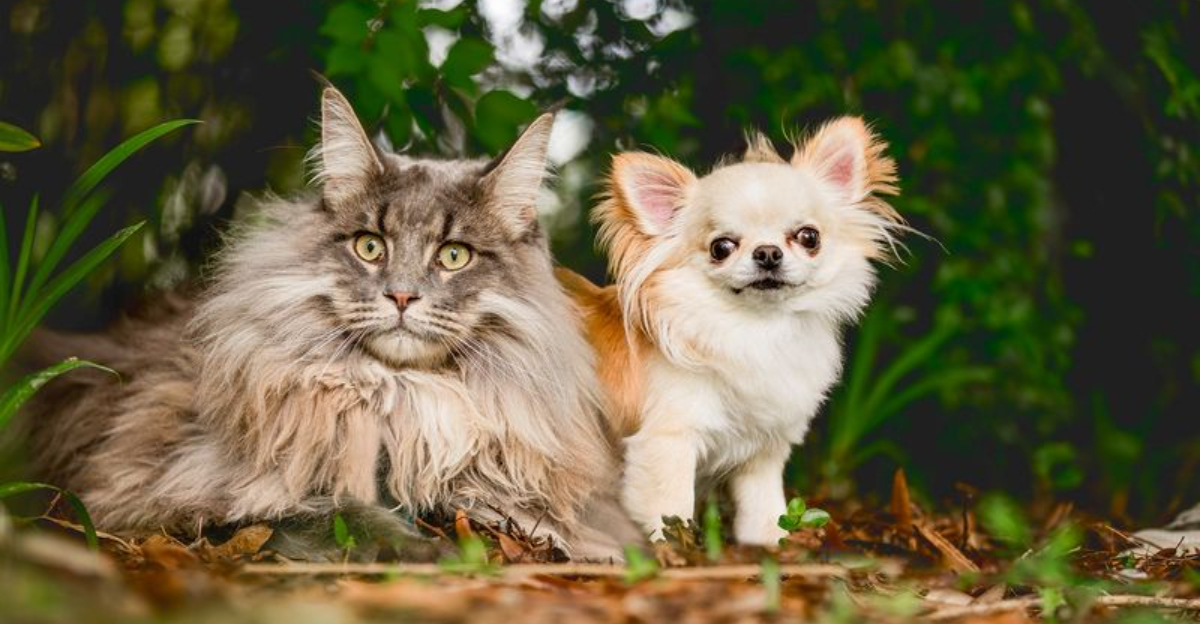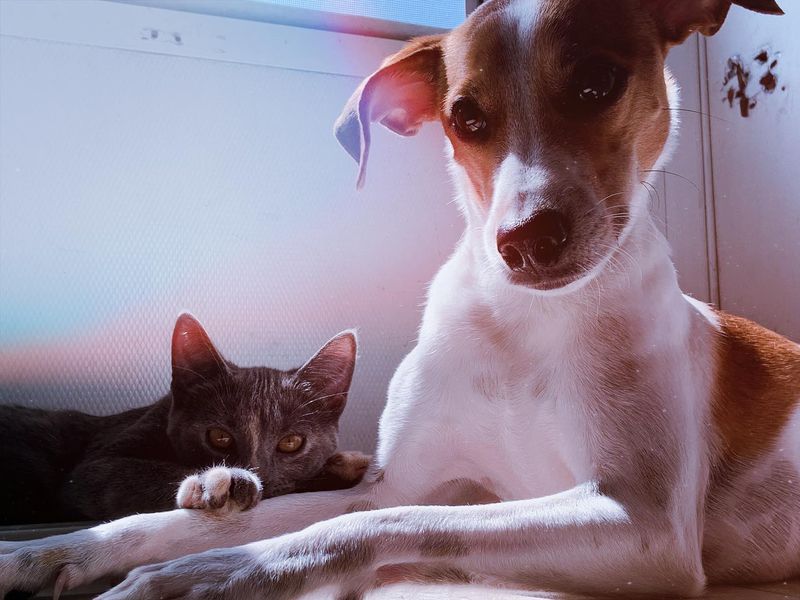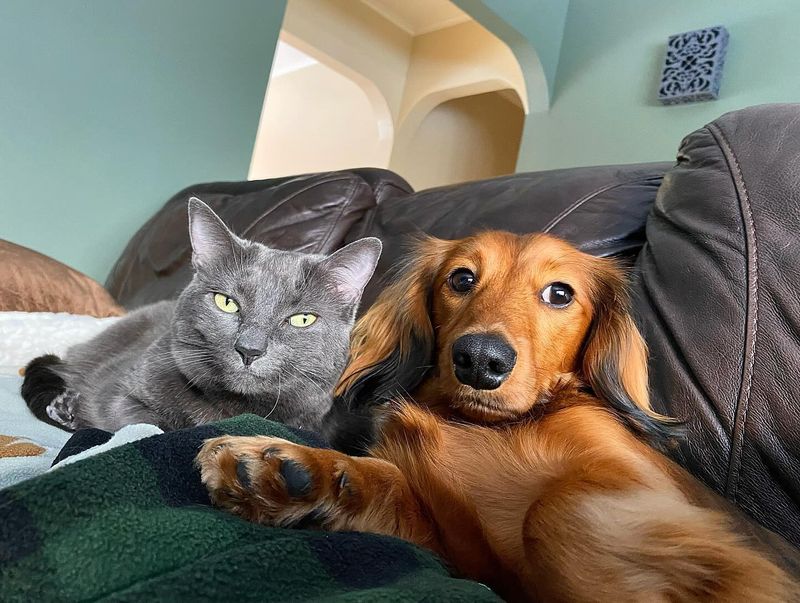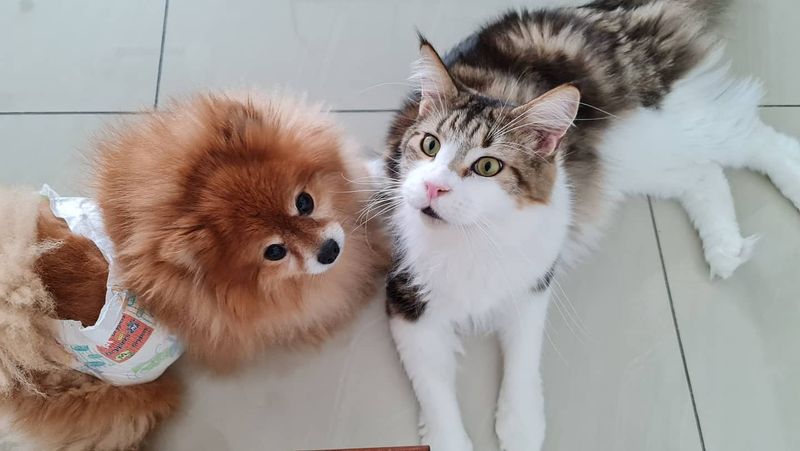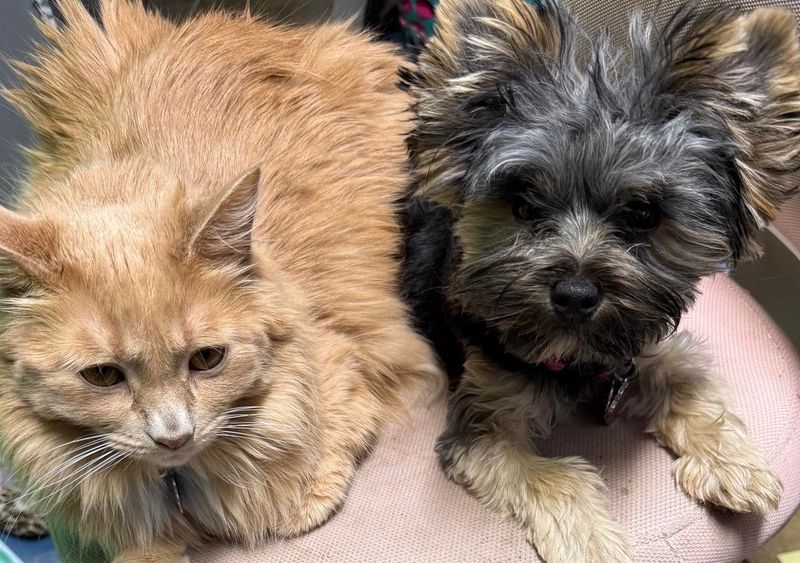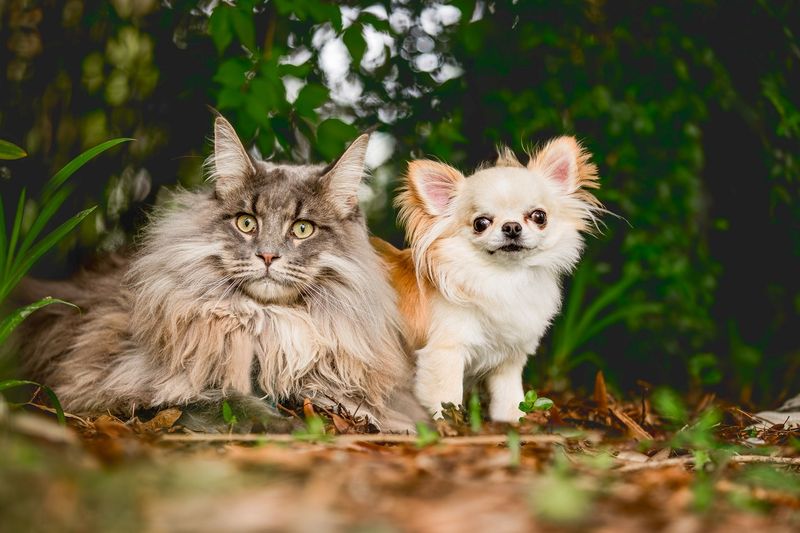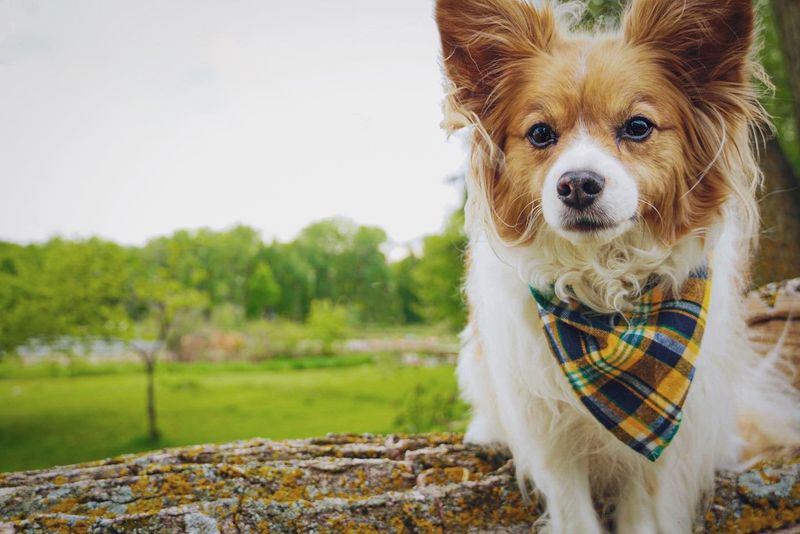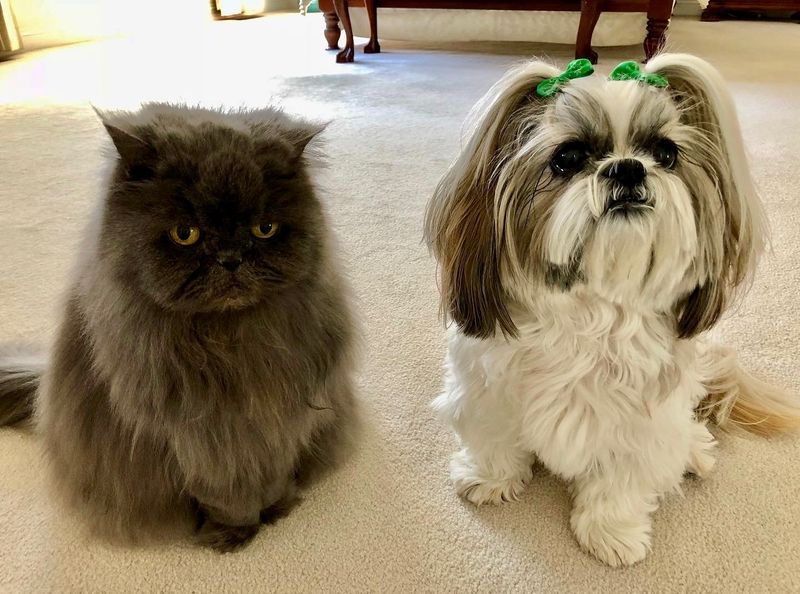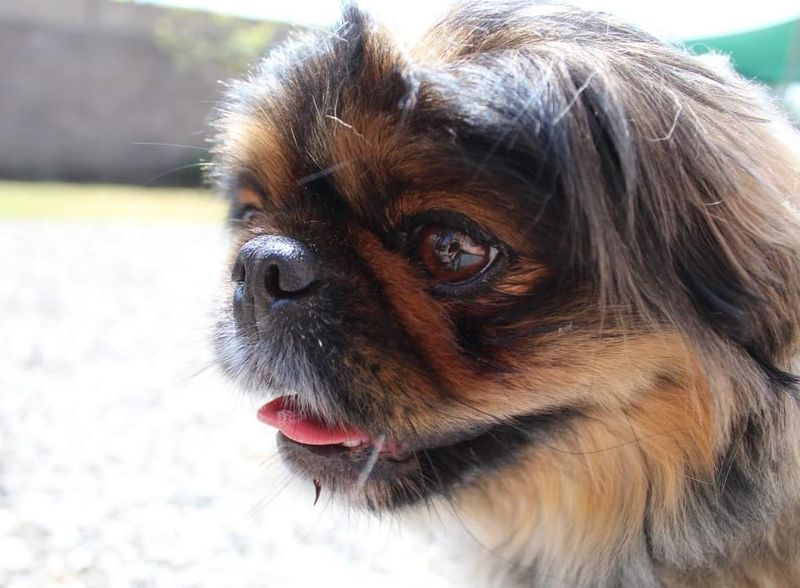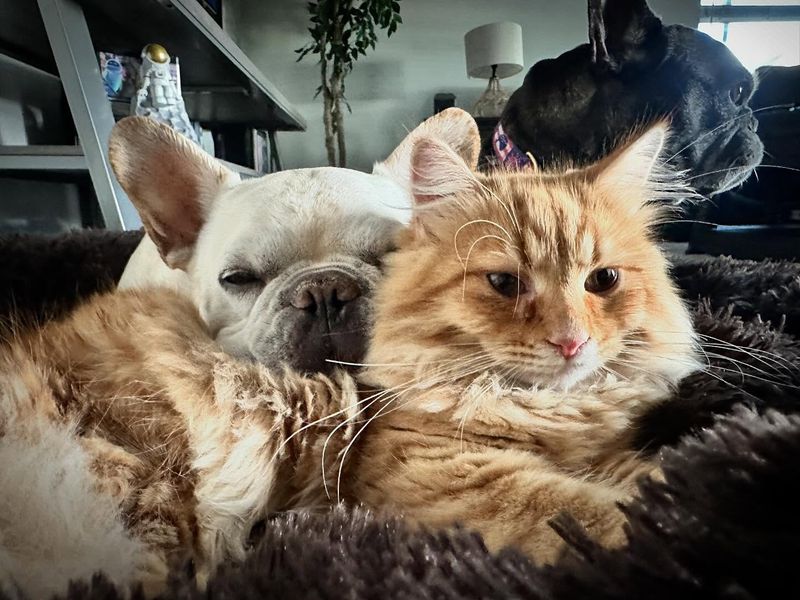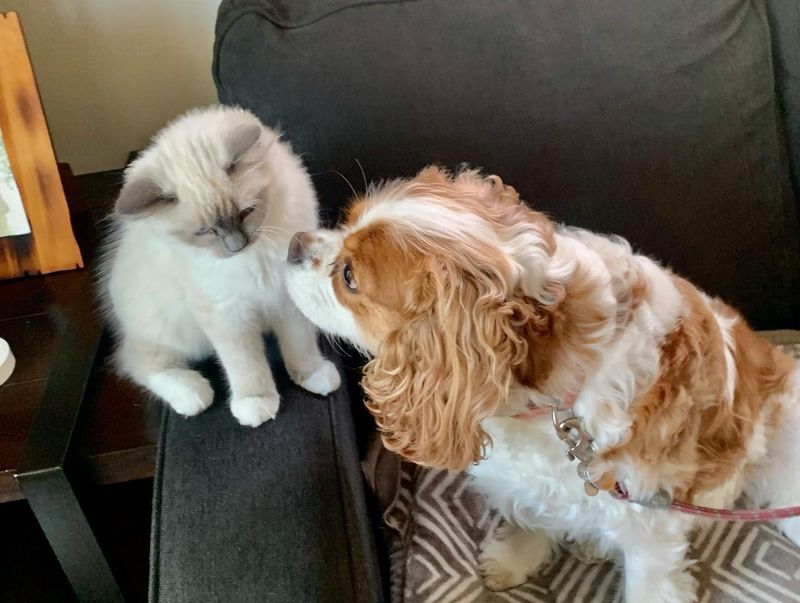While dogs and cats can sometimes live harmoniously, certain dog breeds may pose challenges for homes with feline residents. This article explores twelve small dog breeds that may not be the best choice if you already own a cat. Each breed has unique traits and tendencies that might make canine-feline cohabitation more difficult.
Jack Russell Terrier
Feisty and full of energy, the Jack Russell Terrier is known for its bold character. These little dogs have a strong prey drive, which means they might see cats as something to chase. Despite their size, Jack Russells are incredibly agile and quick, often getting into places you wouldn’t expect.
Their tenacity and determination make them excellent hunters, but also a challenge for cat owners. They need a lot of exercise and mental stimulation to keep them happy and prevent unwanted behaviors.
If you love both cats and Jack Russells, be prepared for a lively household!
Dachshund
With their long bodies and short legs, Dachshunds are not only adorable but also quite curious. Originally bred for hunting, they have a strong instinct to track and chase, which can spell trouble for cats.
These dogs are known for their stubborn streak, making them both charming and challenging. Training a Dachshund requires patience, especially if they catch sight of a potential ‘prey.’
Their playful nature can be delightful, but it can also lead to misunderstandings with feline friends. Dachshunds thrive in environments where their energy is channeled positively.
Miniature Pinscher
The Miniature Pinscher is often described as the ‘King of Toys’ due to its confident and lively nature. Known for their high energy and curiosity, they are always on the move and can be quite assertive with other pets.
Their independent streak can sometimes lead to clashes with cats, especially if they feel their territory is being invaded.
Despite their small stature, Miniature Pinschers need firm training to manage their spirited behavior. Introducing them to cats should be done with patience and care to foster a peaceful coexistence.
Pomeranian
With its thick, fluffy coat and cheerful demeanor, the Pomeranian is a delight to behold. However, this breed can also be quite territorial, often acting like a watchdog.
Their tendency to bark at anything unusual can be bothersome to more reserved pets like cats. Pomeranians love to be the center of attention and might not appreciate sharing the spotlight with a feline companion.
Early socialization can help reduce territorial behaviors, but introducing them to a cat requires effort and patience. Their playful antics, though charming, may be overwhelming for a timid cat.
Yorkshire Terrier
Yorkshire Terriers, or Yorkies, are known for their bold and confident nature. Despite their small size, they often act like much larger dogs, which can lead to conflicts with cats.
Their hunting background gives them a strong prey drive, making them quick to chase anything that moves, including feline housemates. Yorkies are loyal and love attention, but they require early socialization to adapt well to living with cats.
Their spirited personality can be endearing but may need to be tempered to prevent them from seeing cats as adversaries rather than allies.
Chihuahua
Small yet mighty, the Chihuahua carries a big personality in a tiny package. Often fiercely loyal to their humans, they may become territorial, especially around other pets like cats.
Chihuahuas can be quite vocal, alerting their owners to any perceived threats, including feline intruders. Their size may deceive you, but their attitude makes them formidable.
Socialization from an early age is crucial to help them coexist peacefully with cats. Without it, they might see cats as rivals rather than friends, leading to a tense household dynamic.
Papillon
The Papillon is as charming as it is lively, with its signature butterfly-like ears. Known for being intelligent and trainable, they can adapt well to different environments. However, their energy and confidence can sometimes overwhelm more timid pets like cats.
They enjoy being active and might chase cats in play, but this can lead to misunderstandings.
Papillons thrive in interactive households where they receive plenty of attention and stimulation. Ensuring they are well-socialized can help manage their exuberance around feline friends.
Shih Tzu
Shih Tzus are known for their sweet and friendly nature, often making great companions. However, they can be quite protective of their territory, sometimes leading to issues with other pets like cats.
Their affectionate behavior is endearing but can become possessive, especially when it comes to their favorite humans.
While generally good-natured, introducing a Shih Tzu to a cat requires careful management to ensure both pets feel secure and respected. Their love for comfort and companionship can blend well with a cat’s lifestyle if handled properly.
Pekingese
The Pekingese exudes an air of royalty with its majestic appearance and independent nature. These dogs are quite loyal, often forming strong bonds with their owners, but may become aloof towards other pets.
Their dignified demeanor can sometimes clash with a cat’s more relaxed attitude. Although small, Pekingese are quite determined and can be possessive of their space and humans.
When introducing them to a cat, patience and gradual exposure are key. Their proud nature means they might not easily share the spotlight, requiring thoughtful integration.
Boston Terrier
Known for their ‘tuxedo’ markings, Boston Terriers are lively and affectionate companions. They are generally friendly but can be excitable, leading to potential chaos in a household with cats.
Their playful nature might lead them to chase, which can be unsettling for a cat not used to such antics. Boston Terriers need early socialization to help them manage their interactions with feline friends.
Despite their boundless energy, they have a loving side that, if nurtured properly, can lead to a harmonious relationship with a cat over time.
French Bulldog
French Bulldogs, with their iconic bat-like ears and sturdy build, are known for their affectionate nature. However, their playful energy can sometimes be too much for cats, leading to misunderstandings or territorial disputes.
They are generally sociable but require proper training to ensure they respect the boundaries of a feline household member.
French Bulldogs thrive on companionship and might become jealous if they feel ignored in favor of a cat. Establishing clear boundaries and fostering mutual respect can help them live harmoniously with cats.
Cavalier King Charles Spaniel
The Cavalier King Charles Spaniel is known for its gentle and affectionate demeanor. While they typically get along well with other pets, their desire for attention can create tension with cats.
These dogs are very social and enjoy being part of the family activities, which might not always align with a cat’s independent nature.
Ensuring they have their own space and receive ample attention can help mitigate any rivalry. Their sweet nature can lead to a loving relationship with a cat if introductions are handled with care and sensitivity.
